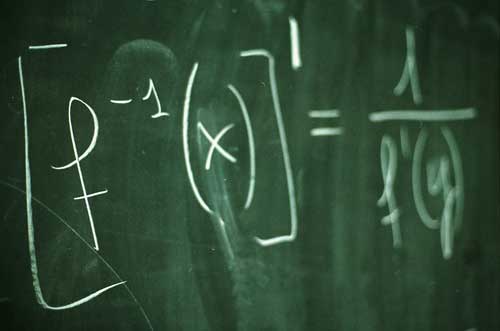 by Preston MacDougall June 20, 2008
Recent news from Middle Tennessee is suggestive of a new counter-intuitive movement that would bring incredible tax-relief if we all believed in it - homeopathic education. 
Pisa is a city in Italy that is famous as a center of Renaissance thinking. It is where Galileo was born, educated, and began shaping modern science with his sharp tools of critical thinking. PISA is also the acronym for the large-scale Program for International Student Assessment, which is given every three years to almost a half-million 15-year-olds from 30 industrialized countries. The results of the most recent assessment were made public last year, and they were as disappointing as the previous one. More so if you consider that the No Child Left Behind legislation signed into law in 2002 was meant to directly address the core competencies that are the focus of PISA. As before, we learned that high school students in the U.S. score far below average in their mathematical competency, and slightly below average in their ability to apply basic science knowledge in problem solving. For U.S. students, officials said that all the results of the reading portion of the test were discarded because of a printing error. In a global economy, it is surely not a good prognosis when American teens were out-performed by their peers in 23 out of the 30 industrialized countries on the mathematics portion of the test. Math is often said to be the language of science and engineering, so perhaps not all of our "reading" results are invalid. In response to the results, Margaret Spellings, the U.S. Secretary of Education, echoed the disappointment and cited ongoing initiatives to strengthen math and science education in American schools. In particular, a National Math Advisory Panel had already been appointed by President Bush, and is "preparing to recommend ways to improve public school math instruction, with a focus on algebra." So far, so good. But here's where my fears of homeopathic education started creeping in. Beginning this fall, the Metropolitan Nashville school district will stop teaching algebra to 7th grade students that are ready for advanced mathematical education. As a point of reference, on my bookshelf there is a middle school textbook from Japan where the quantum theory of atomic structure is introduced - quantitatively. If you are like me, you might be wondering what the school board will replace the advanced mathematics instruction with. In homeopathic medicine, the drugs are diluted with pure water. Perhaps a hint of the tenets of homeopathic education is contained in news from another Middle Tennessee school district that announced the formation of an elementary school competitive basketball league. So even though international student assessments don't give us much to feel good about, at least half of the hometown crowd can cheer for the winners when Central Elementary plays Main Street Grammar. Basketball or basket-weaving, I am inclined to root-out any and all efforts to dilute math and science education since this is the training that will give our students the sharpest competitive edge in the technology-driven global arena. For tax-weary sports fans, former president of Harvard University, Derek Bok, looked at things from an economic perspective when he said "If you think education is expensive, try ignorance." Getting back to the medical analogy, since all credible clinical studies have concluded that homeopathic medicine offers nothing but a placebo effect, it is only economical if you place a low value on your health.
On the Web:
E-mail your letters & opinions to editor@sitnews.us SitNews ©2008 Stories In The News Ketchikan, Alaska |